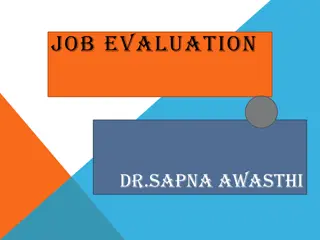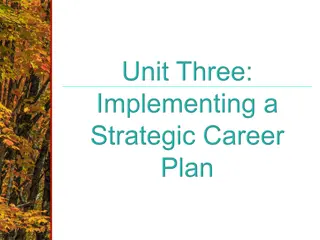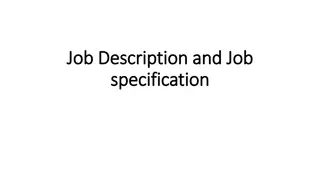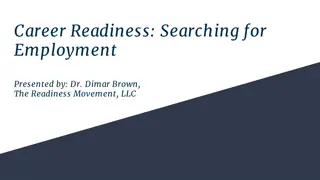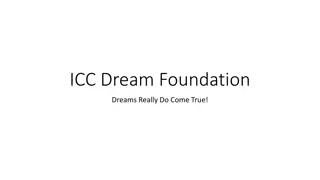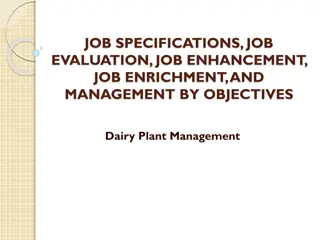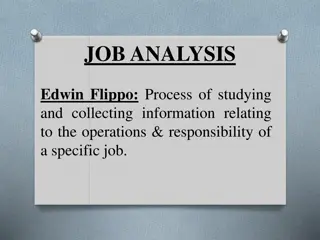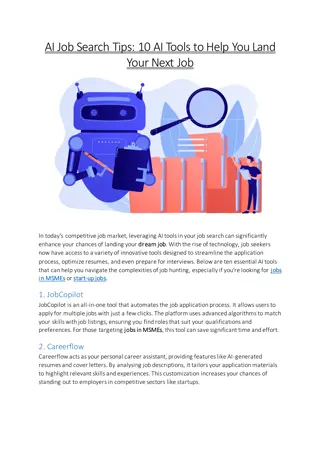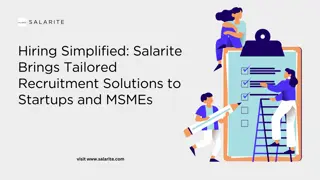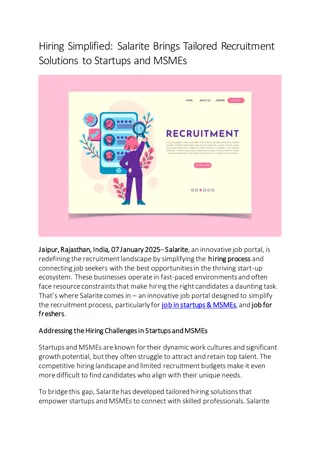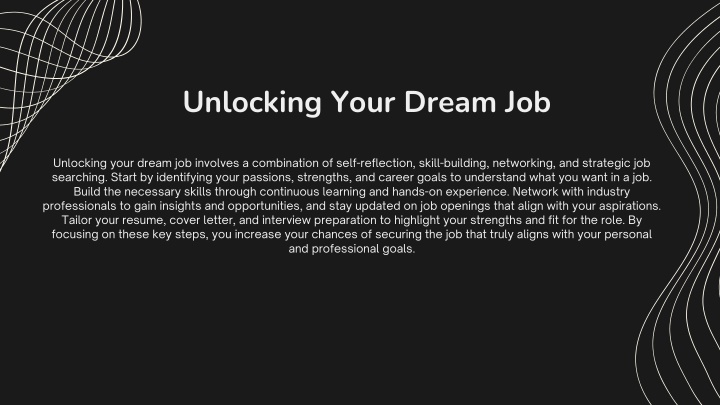
Salarite Unlocking Your Dream Job....
Unlocking your dream job involves a combination of self-awareness, preparation, and strategic actions. Start by identifying your passions, skills, and the type of work environment you thrive in. Continuously build relevant skills through learning and
Download Presentation

Please find below an Image/Link to download the presentation.
The content on the website is provided AS IS for your information and personal use only. It may not be sold, licensed, or shared on other websites without obtaining consent from the author. If you encounter any issues during the download, it is possible that the publisher has removed the file from their server.
You are allowed to download the files provided on this website for personal or commercial use, subject to the condition that they are used lawfully. All files are the property of their respective owners.
The content on the website is provided AS IS for your information and personal use only. It may not be sold, licensed, or shared on other websites without obtaining consent from the author.
E N D
Presentation Transcript
Unlocking Your Dream Job Unlocking your dream job involves a combination of self-reflection, skill-building, networking, and strategic job searching. Start by identifying your passions, strengths, and career goals to understand what you want in a job. Build the necessary skills through continuous learning and hands-on experience. Network with industry professionals to gain insights and opportunities, and stay updated on job openings that align with your aspirations. Tailor your resume, cover letter, and interview preparation to highlight your strengths and fit for the role. By focusing on these key steps, you increase your chances of securing the job that truly aligns with your personal and professional goals.
Understanding Your Dream Job Understanding your dream job involves a process of self- reflection to align your career with your passions, skills, and values. It starts with assessing your strengths and interests, identifying what excites and motivates you in your work. From there, you define key aspects such as the type of work environment you prefer, the responsibilities you enjoy, and the industry you want to be a part of. Work-life balance is another important consideration, with factors like flexibility and hours playing a role in defining your ideal job. Long-term goals also matter thinking about career growth, job stability, and advancement opportunities. Company culture and alignment with the organization s values are crucial for a fulfilling experience. Additionally, salary expectations and benefits must be considered, weighing them against job satisfaction. Seeking advice from mentors or peers and researching roles can further refine your vision, helping you identify the job that truly fits your aspirations.
Building the Right Skills Objective n 1 Objective n 2 Objective n 3 Seek Feedback and Mentorship: Regular feedback from peers, supervisors, or mentors helps identify areas of improvement and ensures that you're on the right track in skill development. They can provide guidance and share insights on the skills needed for career advancement Continuous Learning and Development: Stay updated with the latest trends and technologies in your field. Take courses, attend workshops, and seek certifications that add value to your skill set. Additionally, hands-on practice and real-world experience are essential for skill development Identify Skill Gaps: Assess your current abilities and determine which skills are required for your desired job or career progression. This may involve technical skills, soft skills, or industry- specific knowledge that will make you more competitive.
Networking and Building Connections Engage in Industry Events and Online Communities: Attend networking events, conferences, and webinars, and join online forums or social media groups related to your field. These platforms provide opportunities to meet like-minded professionals and potential mentors. Build Genuine Relationships: Focus on creating meaningful, two- way relationships rather than just collecting contacts. Offer support, share valuable insights, and stay in touch regularly. Building trust and rapport leads to stronger, long-lasting professional connections.
Crafting an Impressive Resume and Portfolio 01 03 02 Focus on Achievements and Impact: Instead of just listing job duties, emphasize your achievements and the impact you've made in previous roles. Use measurable results (e.g., increased sales by 20%) to demonstrate your value. Professional Design and Layout: Ensure your resume and portfolio have a clean, organized, and professional design. Easy-to-read fonts, proper headings, and well- structured sections make it easier for employers to find key information. Tailor Content to the Job: Customize your resume and portfolio for each position by highlighting relevant skills, experiences, and accomplishments that match the job description. This shows you ve done your research and are a good fit for the role
Mastering the Interview Process Mastering the interview process is essential for securing your dream job. It begins with thorough preparation, which involves researching the company, understanding the role, and aligning your qualifications with the job description. Practicing answers to common interview questions and preparing for behavioral scenarios helps you confidently present your skills and achievements. During the interview, it s important to demonstrate enthusiasm and engage in active listening to ensure you understand the interviewer s questions. A positive attitude and effective communication skills are crucial for making a good impression. Asking thoughtful questions about the company s culture, team structure, and growth opportunities signals your genuine interest in the role. Additionally, following up with a thank-you note shows appreciation and reiterates your enthusiasm. By preparing well and presenting yourself authentically, you increase your chances of success and build confidence in handling future interviews, ultimately improving your prospects in securing the job you want







